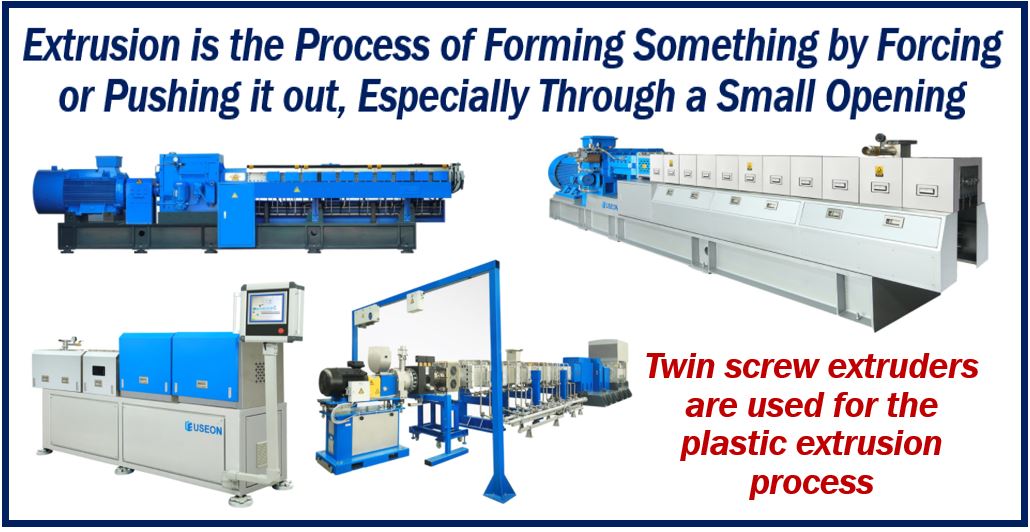These days, extruder machines have become a vital part of the industry. The process of extrusion can easily transform viscous substances into high-quality structured products. All this is done by accurately controlling the processing conditions.
You may have already used or seen a twin screw extruder, which is commonly used for the plastic extrusion process. In this process, two or more ingredients are mixed or compounded.

This machine consists of two intermeshing and co-rotating screws that are mounted on splined shafts in a closed barrel. Twin screw extruders are extremely useful in the production of wood fiber blends and rigid PVC. Today in this blog, we’re going to tell you all about the Twin screw extruder. From its working process, and types to its advantages and applications, we’ve explained everything in detail.
Types of Screw Extruder Machines
There is a diverse range of screw extruders made from premium materials available in the market. The main difference can be identified from the meshing degree and the rotational direction of the screw. On the basis of this, twin-screw extruders can be divided into meshing types and non-meshing types. For example, single-screw and multi-screw forms are available in the market.
Advantages of Twin Screw Extruder
The entire technology and process of the twin screw extruder include the transformation of the solid plastics into uniform melts by heating, pressing, and shearing. These pieces or melts later to the next steps.
Each type of twin screw or multi screw extruder has two screws, and you’ll be surprised to know that they are highly efficient and capable of processing several tons of plastic per hour.
Let’s explore other benefits of a twin screw extruder:
- Twin screw extruder has remarkable mixing capability. This is because it has a broad diversity of specialized screw designs such as kneading blocks, reverse screw elements, gear mixing elements, etc. This design factor allows the extruder to do precise and accurate shearing/mixing.
- This machine also has a high level of process flexibility. It has the capability to handle multiple processing functions in series such as melting, mixing, cooking, venting, cooling, etc.
- When it comes to controlling the entire process parameters, twin screw extruders are way better than single screw extruders. This includes narrower residence time distribution, higher convective heat transfer, lower dispersion of shear rates and strain, and accurate control of temperature profile.
- Due to the positive pumping action of the screws, the twin screw extruders can handle a wide range of raw materials and mix formulations, including complex recipes and screw speed-aided compensation of the screw wear.
Applications of Twin Screw Extruder
Twin-screw extruders have a high capacity and low power consumption; that’s why they’re applicable in many industries. They can be used for manufacturing RPVC dual conduit pipes, RPVC pipes, PVC profiles, and PVC compounding.
They can also be used in the polymer, chemical, and food industries for mixing a wide variety of consumer products, such as:
- Adhesives
- Sealants
- Mastics
- Putties
- Soaps
- Detergents
- Toner
- Plastics
- Food & feed products
- Cellulose pulps
Conclusion
Now you know what twin screw extruders are, what their various types are, and the benefits of using them. As compared to single screw extruders, twin screw extruders provide higher economic opportunities and business potential. So, if you want higher process flexibility and productivity to produce a variety of products or want to convert materials, you can go with the twin screw extruder machines.

